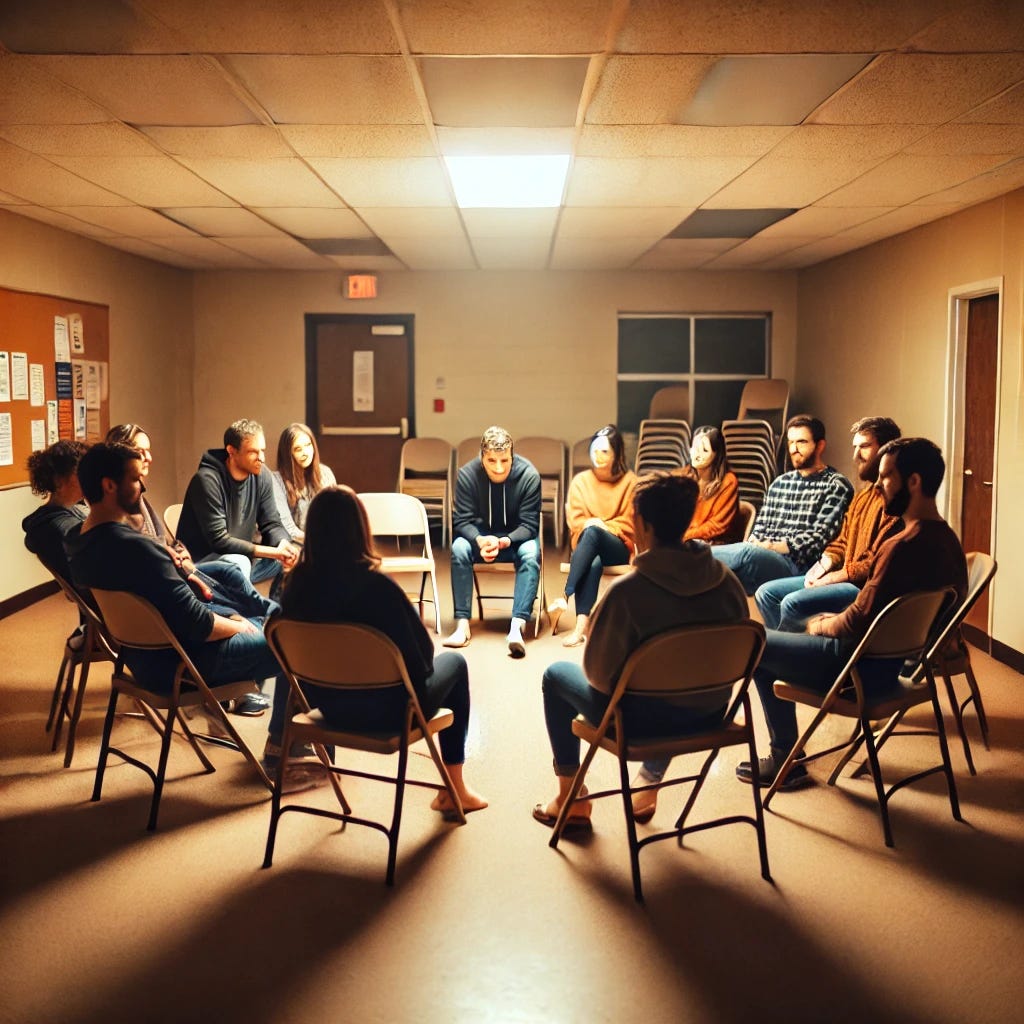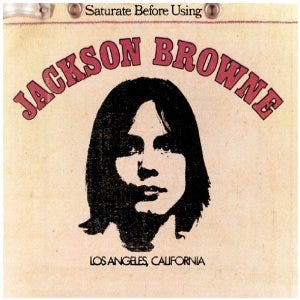If we think back to an old album of the week, one of the better songs on Jay-Z’s Reasonable Doubt is “Regrets.” Hov’s chorus gives us an incredible life lesson: “In order to survive, you gotta learn to live with regrets.” This is an important aspect of being able to dust yourself off after something that didn’t go your way, or a mistake you made, or simply bad luck, and keep on keeping on.
But if we really analyze those regrets, we might find that a certain experience actually had other benefits that we’re missing if we myopically focus on the regret coming out of something. And it’s not about finding a silver lining in a bad situation - that kind of exercise starts at the premise that you have to try to find something decent out of a shitty situation. It’s more about zooming out and contextualizing the regret against the backdrop of the larger experience.
In Order to Survive…
This all came from a work happy hour that I actually went to. I was a few deep at the bar the other week, finding myself in conversation with some C-suite folks from the agency - a dangerous place to be for both sides of the dialogue. The topic turned to post-secondary education, and I shared that I was unhappy with my experience in undergrad and that I really only had myself to blame.
I look back on my four years earning a bachelor’s degree as a fun time in my life in which I got by academically without putting nearly as much effort into the endeavor as I should have. I truly wish I had tried harder in college - it was such an opportunity to learn from incredible minds and while I certainly didn’t squander it, I did not take full advantage of it. And to this day I still regret it. If my dad read my newsletter, this is where he would rage-quit the internet knowing how much it cost him and me to go to private university.
This executive (I will not out them due to what I assume is the shame of being associated with this newsletter - which, fair) looked at me and said, “Sure, but was that time all a complete waste? You had no other experiences that guided you in life from your time there?”
I had never thought of it like that, and even if my academic achievements weren’t exactly anything to write home about, I still accomplished a metric ton of life achievements in those short four years. I met the woman who I would eventually marry, and she did try at school (and it shows - so always try to marry up, folks.) I learned to live with a Yankees fan from the Bronx in close quarters (our first phone conversation when we first got paired up as freshman roommates was basically us just talking shit about our respective hometowns and sports teams, so it could have gone either way.) Through some surprising (to me) conversations with Chase Manhattan Bank, I learned how credit worked. And senior spring I learned how ridiculous the disciplinary process is at these universities (I was on probation six months after graduating, which made less sense than getting in trouble for participating in 40s on 40.)

None of those items factored into my GPA, which sat right in the meaty part of the bell curve I liked to operate within when it came time for graduation. But those academic-tangential life experiences certainly are not things that I regret, even if the raison d’etre for these wildly expensive universities was something I did not achieve to a level I wanted to (though I do regret my pre-2008 financial crisis FAFSA interest rate.)
…You Gotta Learn to Live With Regrets
Step One, like so many other negative aspects of approaching a problem in life, is simply admitting that the regret itself exists. Humans are hard-wired to avoid thinking about these kinds of disappointing things, and regret aversion falls under the Nobel-prize winning behavioral economic theory of loss aversion. Thanks once again to Daniel Kahneman and Avos Tversky.
So, it does take some uncomfortable self-reflection to consider these regrets, but it’s not a useless exercise. The best decisions are made with the fullest amount of facts available, and if someone is mired in loss and regret aversion, they are opening themselves up to a number of biases that could cloud their thinking (including one that companies are well aware of and actively take advantage of). It’s also a healthy antidote to toxic positivity.
But outside of the rational and logical, there’s an opportunity for personal growth here as well. Since that conversation a few weeks ago at the bar with one of my many bosses, my view of my undergrad time has evolved into a much more positive one and I look back at those years in Harlem Morningside Heights with much more warmth than I did previously.
That small conversation, with an almost quick aside about my undergrad experience, really shifted my perspective on what had been a pretty core memory. Recognizing the regret was one thing, but actually verbalizing it to someone else opened up a dialogue that I was able to take a lot away from. The bias I had that told me I didn’t take enough advantage of the chance I was given in college to prepare myself for a life I wanted was false and clouded by loss aversion. I wonder if that executive also listens to Jay-Z.
Grab Bag Sections
WTF Pianos: Last week, my wife and I went to a neighbor’s home who was moving to inquire about their acoustic piano. We didn’t just pick them at random, we saw a post they had put up in a Facebook group called Buy Nothing and connected there (the Times had an interesting look into this subculture.) A lot of people are in these groupes for the sustainability aspect, but I really like it for the quirky old things people put up there - especially in towns like mine that date back to pre-Revolutionary US.
Anyway, the stars aligned and the piano came yesterday (and it’s a beaut.) Which got me thinking, outside of the insanely rich, who is buying pianos brand new with their 5-figure price tag? My local Buy Nothing group (in a town of just over 10,000 people) has had multiple ones for free (just pay shipping and handling) over the past year. A quick stroll through Facebook marketplace shows a similar trend - just figure out shipping and people are essentially begging you to take them away.
But, dear reader, the piano market is growing. And not just in parts of the world with developing middle classes looking to impress their neighbors - the 3% CAGR over the next half-decade in the piano market is actually being led by North America. One of the maturest markets out there still wants to buy pianos when there are plenty of free, hot pianos in your area. Make it make sense.
Album of the Week: When David Geffen pitched this artist to Atlantic Records, he was told if he wanted to release his album he should start his own label to do it. Geffen took the advice to heart and the first artist (of many renowned musical acts) for Geffen’s legendary label was Jackson Browne.
Browne’s debut self-titled album can best be described as super chill folk rock. The debut track in “Jamaica Say You Will” is impossible not to simply sway to at some point. Even the uptempo track standout “Doctor My Eyes” has a calmness to it in the choral vocal layering (maybe because David Crosby and Graham Nash were on backing vocals, which will bring a chill vibe to just about anything.)
The second-best song on the album is “Rock Me on the Water” and if you’re feeling like you’re having a religious experience, it’s because it’s an example of an amalgamation of rock, folk, and gospel - a triumvirate you won’t find very often in the music world. But then again, there’s a reason Geffen named his label after the process of finding a home when others wouldn’t offer one.
There really aren’t any bad songs on the album and dare I say it’s a good chill antitode to the absolute chaos reigning in the outside world. Give JB a spin - just don’t actually dunk the album in water.
Quote of the Week: “I often regret that I have spoken; never that I have been silent.” – Publilius Syrus
See you next week!







